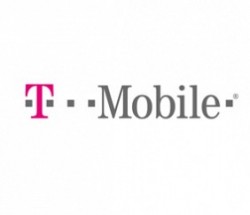 T-Mobile’s Chief Marketing Officer Cole Brodman has made various statements in recent days regarding the always contentious and recent hot button issue of device subsidies on US carriers when he was asked what he would do if he were in direct control of the practice at T-Mobile. In what could be assumed to be a hypothetical question meant to get his opinion, he was quite blunt:
T-Mobile’s Chief Marketing Officer Cole Brodman has made various statements in recent days regarding the always contentious and recent hot button issue of device subsidies on US carriers when he was asked what he would do if he were in direct control of the practice at T-Mobile. In what could be assumed to be a hypothetical question meant to get his opinion, he was quite blunt:
“It [device subsidies] actually distorts what devices actually cost and it causes OEMs, carriers — everybody to compete on different playing fields,” the CMO said. “I think it is really difficult, especially from a consumer perspective, because it causes consumers to devalue completely the hardware they are using…. It is amazing hardware, but it has become kind of throw away. So, it is unfortunate, you’ve got dual-core, multiprocessor devices with amazing HD screens that get thrown away at 18 months.”
As carriers have been subsidizing smartphones with deeper and deeper subsidies since 2008 and even offering flagship models in order to draw in new customers, Brodman’s comments certainly do ring true to those that have followed the mobile industry for the past few years, but one also has to wonder how much of that answer has to be related to T-Mobile’s current financial straits, as the carrier prepares to rollout its LTE network from the proceeds of the failed AT&T purchase and merger.
While the proceeds from that deal are being used to accomplish that goal, the carrier also faces issues with retaining customers, as various T-Mobile spokespeople have also lamented that it is the only carrier in the US to not officially offer the iPhone, due to its 3G network using the non-standard AWS frequency, while Apple ships the iPhone with support for AT&T’s 3G network and has so far refused to stray from that design decision. This network incompatibility issue has affected T-Mobile since the launch of its 3G network in 2009, since devices have to carry radio modules that are more expensive to develop and manufacture at scale compared to “standard” modules that support common frequencies around the world.
Getting back to the device subsidy issue, this means that every 3G device from T-Mobile has had to carry a deeper subsidy than normal, just to get current and potential customers interested in its products and services, which has the drawbacks of affecting profitability and affecting consumer perception, since US consumers will typically flock carriers that prominently feature the iPhone at the behest of those that don’t, even if those carriers that do carry the iPhone have their profitability and network negatively impacted.
Brodman’s wish to end subsidies may be well-intentioned, but it also comes from a place of self-preservation, as T-Mobile has subsidized multiple flagship smartphones with little return on investment in terms of development costs and marketing. T-Mobile attempted to do away with device subsidies with its Even More Plus and Value plans last year. The Even More Plus and subsequent Value service plans attempted to do exactly what Brodman is asking.
The Value plans were priced so that devices would have to be purchased at retail price, despite being carrier branded and locked while depending on the type, the monthly device fees ranged from $3/month for basic phones, $5 for feature phones including Symbian devices like the Nuron, $10 for smart phones and $15 for higher-end smartphones like the G2X, with an initial payment equal to half of the phone’s T-Mobile suggested retail price or paying full retail at the time of purchase while still requiring a 2 year agreement. The monthly rate would then reflect the fees for the cost of the phone, but it would not be gradually reduced as it would be in the European implementation.
T-Mobile has never divulged customer numbers for those that are on Value plans and it’s likely they never will, as the way the carrier implemented its parent company’s service plan model was half-hearted and very poorly promoted, as all current marketing focuses on the conventional US model of the 2 year agreement with carrier subsidy. Maybe he was thinking out loud or just not measuring his response very well, but it seems to me that Brodman may have forgotten what his employer was doing on that front, but if the apparent lack of success of the Even More Plus and subsequent Value plans are any indication, it’s unlikely anyone will listen to his, or any suggestions from T-Mobile anytime soon.